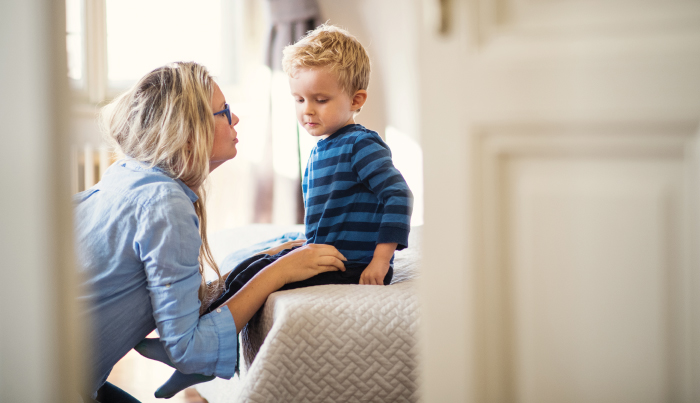
17 Feb Becoming a better parent – The Ideal response
Our Westview team member, Terry Owens, continues his series, Becoming a Better Parent. In this article, Terry shares important ideas about the “Ideal response.”
Parenting is a learned skill passed down from generation to generation. Each generation tweaks their inherited parenting practices by adding or subtracting practices as their own philosophy of parenting develops. Healthy parents strive to be good parents and look for new loving and effective ways to parent their children.
TBRI (Trust-Based Relational Intervention) is an evidence-based parenting model developed by the Karyn Purvis Institute of Child Development at TCU (child.tcu.edu). This model teaches a holistic way of parenting children through tending to the connection between the parent and child. Consequently, TBRI helps children stay on their developmental trajectory.
An important part of the TBRI method is the IDEAL Response. IDEAL contains an acronym that helps parents remember how to respond to their child’s behavior. Remember that behavior is a symptom of a need not met.
- Immediate: Immediate responses should occur within three seconds of the behavior. A quick response is because the brain only holds information in short-term memory for a few seconds. When you respond to challenging behaviors quickly, your children are better able to learn from the experience.
- Direct: Being direct is about staying engaged and connected to your child when dealing with challenging behaviors. The foundation of all relationships is connection. Staying engaged with your child crucial when addressing challenging behavior, so here are some ways to stay engaged.
- Getting on your child’s level: Get down on eye level with your child or sit if your child is sitting.
- Gentle touch: A gentle touch on the shoulder or arm is a way to engage that is calming for your child (and you).
- Make eye contact with your child: This is a wonderful way to connect with your child. Ask to see their eyes in a playful way, such as, “Are your eyes pink?” Or, “Can I see your pretty eyes?”
- Efficient: Efficient is to use a measured response to address the behavior. Your primary goal is to stay engaged with your child and keep the train moving. Lectures about their behavior can make the behavior worse and make discovering and meeting the need behind the behavior more difficult. Simple, brief, and structured responses are much more efficient.
- Action-based: Research shows that active and experimental learning develops new connections in the brain. Basically, it helps your child learn at a greater pace and level. An example of action-based learning that redirects improper behavior is giving your child the opportunity to “re-do” the behavior they have not done well. What is a “re-do”? In a nutshell, it is giving your child the opportunity to start over and to do their task the right way. For example, you might ask your child to make their bed and they might respond by yelling, “I don’t want to make my bed!” A “re-do” goes back to the very beginning. Pointing out the fact that yelling was not a proper response, you ask them if they would like a “re-do.” When you’ve pointed out their misstep, they’ll often take you up on the offer. Then, asking them again to make their bed. They can give the proper “Yes,” answer, make their bed, and life goes on with no punishment to administer. You have pointed out the bad behavior and they corrected the behavior.
- Leveled at the behavior, not the child: Children are fragile, and the behavior doesn’t define who they are. Your careful language can help your children understand the behavior is the problem, not them. They have personal value regardless of their behavior.
Addressing challenging behaviors can be difficult at times and I hope that The IDEAL Response will help you address those behaviors. Remember, as a parent you need to be mindful of yourself and your emotions in the moment when you are addressing your child’s behavior. If you are angry, frustrated, or upset, you could come across in a negative way which could make things worse. Take a second and check yourself so that you can engage with your child in a self-regulated way so you can help them learn to regulate their own behavior.


